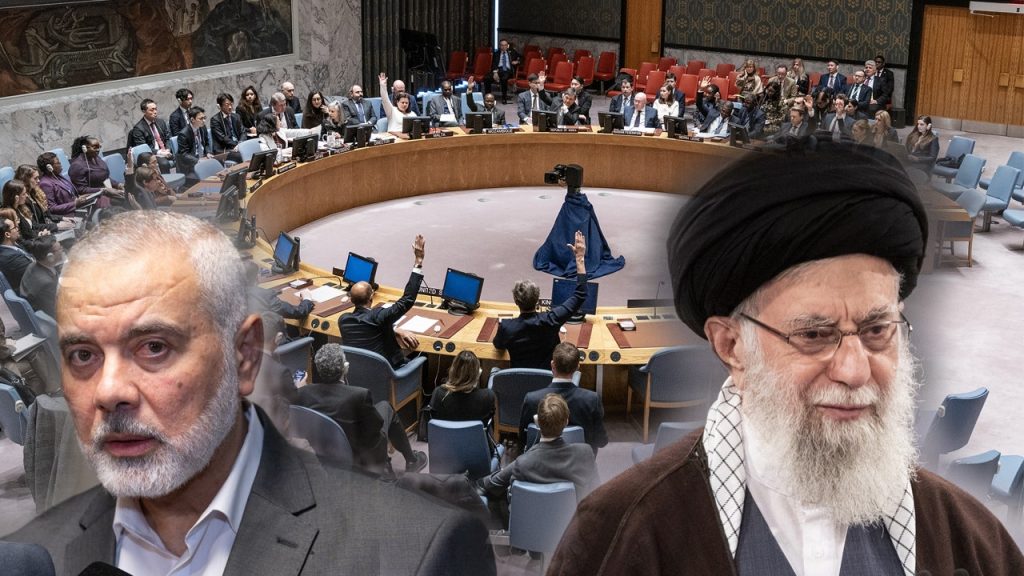Hamas leadership recently met with Iranian counterparts in a highly publicized engagement to promote and praise the United Nations Security Council resolution calling for a cease-fire. Ismail Haniyeh, head of Hamas, held a press conference with Iranian Foreign Minister Hossein Amir-Abdollahian, where they lauded the U.N. resolution as a blow to Israel’s goals. Haniyeh also met with Iranian Supreme Leader Ayatollah Ali Khamenei to discuss the conflict with Israel, which Khamenei praised the resistance groups for their resilience. The U.S. decision to abstain from voting on the resolution allowed it to pass, leading Israeli officials to cancel a high-level delegation to Washington, D.C.
Israeli Prime Minister Benjamin Netanyahu expressed disappointment over the U.S. abstention, believing it damaged Israel’s position and efforts to defeat Hamas and free hostages. Former U.S. Ambassador to Israel David Friedman criticized Biden for agreeing to a U.N. resolution that did not condemn Hamas or condition a cease-fire on the release of hostages, giving Hamas a diplomatic victory. Iranian media outlets hailed the resolution as a triumph for Hamas, claiming it showed Israel’s defeat in both the battlefield and the international stage.
Amir-Abdollahian stated that the resolution demonstrated the belief that eliminating Hamas was an unattainable goal. Iran has long supported Hamas financially and strategically, with some labeling Hamas as a proxy force for Iran. Initial reports suggested Iran trained Hamas fighters for the Oct. 7 attack, but further evidence failed to support this claim, and Iran distanced itself from Hamas during the early stages of the conflict. Hamas rejected a proposal for the release of hostages during negotiations in Qatar, leading to an Israeli delegation’s departure from the talks.
The meeting between Hamas and Iranian leaders marks a significant moment in the ongoing conflict between Israel and Hamas. Haniyeh and Khamenei praised the U.N. resolution, while Netanyahu criticized the U.S. abstention, stating it gave Hamas hope for a cease-fire without releasing hostages. The resolution’s passage was celebrated as a diplomatic victory for Hamas by Iranian media outlets, reflecting Israel’s perceived defeat on the international stage. The close relationship between Iran and Hamas has long been a point of contention, with some accusing Iran of supporting Hamas as a proxy force.
The fallout from the U.N. resolution highlights the complex dynamics at play in the Israeli-Palestinian conflict, with key players such as the U.S., Iran, and Hamas all playing significant roles. The conflict continues to evolve, with negotiations, diplomatic maneuvers, and military actions all shaping the course of events. The meeting between Hamas and Iranian leaders underscores the ongoing support and partnership between the two entities, as well as the challenges faced by Israel in responding to these alliances. As the conflict persists, the international community will continue to navigate the complex web of alliances and rivalries that define the region.


